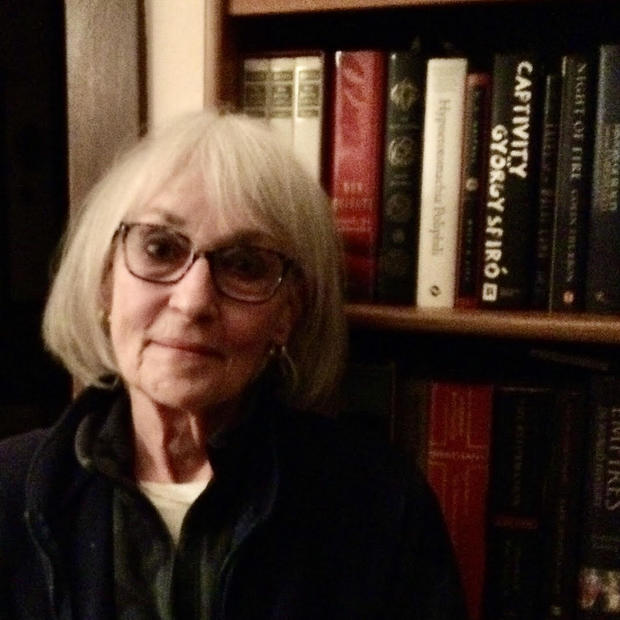“When you’re living on the streets, you have to stop feeling,” a relative of mine who was homeless for a year told me. “If you feel what’s really going on with you, it hurts too much. So you go into sort of a sleep. It’s easier to start caring for yourself again if somebody else starts caring for yourself with you.”
Last Friday (Jan. 13), United Way staff and 300 volunteers helped more than 1,500 people who are homeless or otherwise in dire need of services to connect with those services on the spot. At the same time, these guests could also get some of the kind of TLC that might help them begin to reconnect with themselves.
The event was King County United Way's Community Resource Exchange, its seventh such event in five years. Individual volunteers escorted each visitor to his or her choices among dozens of different resources at stations set up throughout a CenturyLink Field Event Center hall. With the timing at the start of the Martin Luther King Jr. holiday weekend, the organizers stressed the idea of service. T-shirts worn by the volunteers carried King's image and words: "Everybody can be great because everybody can serve."
Among the possibilities available to guests were employment and education assistance, job search and technology resources, dental care, information about public benefits, voice mail plans, long distance calling, massages, flu shots, and a first-class hot meal from FareStart — all free of charge. Throughout the day, long lines filed toward Redeeming Soles, where pairs of new shoes could be tried on. The popularity of this section was hardly surprising; many of the attendees spend hours each day walking in all kinds of weather.
But whether they came for shoes, services, a job, or just something to eat, said Vince Matulionis, United Way Director of Ending Homelessness, the intent of the Resource Exchange was to “meet them where they're at.” Volunteers were instructed to treat visitors “precisely as guests, not clients,” and to interact with them one-on-one, sharing time together as members of the same community.
Fred Devereux, United Way board chair elect, said that the stations at the event that tend to get the early rush are the ones that offer quality-of-life options such as haircuts, photo portraits to send family and friends, foot-washing, and shoes. “Then,” when guests are feeling comfortable, “on to the jobs.”
This makes sense. When the will has been dulled by harsh deprivation, an hour of refreshment and friendly companionship can help people start to look about them with more hope and energy. But even then, if one is homeless, it's hard not to feel daunted.
Homelessness destroys feelings of self-worth, said Bill Block, project director of King County's Committee to End Homelessness. He illustrated with a story about a man who lived under a bridge not far from his home, who had turned down offers of housing from outreach workers and even from a neighbor who invited him to live in a free basement apartment in his house. Block related, "What John always said was, 'God meant me to be here.' "
When John was housed at last, the truth about his resistance to having a roof over his head seemed clear: “He’d had so many doors slammed in his face that the only way he could get up in the morning and look at himself was if God meant him to be there,” said Block. “And when he felt he was in a place that cared and with people who cared, he got back that self-worth and no longer felt God meant him to be there.”
Homeless people can't rebuild their lives unless they find housing first, and United Way's campaign to end chronic homelessness has made a significant difference in King County, especially for veterans. Devereux told of a wheelchair-bound veteran addicted to drugs, who had been homeless for seven years. Doug was a certified electrician, but in his desperate straits he could never have worked again. The change in his life “started with a roof over his head,” said Devereux. With housing from United Way and greater personal security he was able to conquer his addiction, rehabilitate his injured hip, maintain a nourishing diet, and study. Now Doug is getting straight A's in college — and he walks to the grocery store, Devereux said.
Like my relative, who now has a room of his own in an SRO (single room occupancy) building, Doug could start turning his life around at last. It’s easier to start caring for yourself again if somebody else starts caring for yourself with you.
Roy Whitehead, CEO of Washington Federal and the 2011 Campaign Chair for United Way of King County, was at the Community Resource Exchange that morning. In the following melange of glimpses from the event, Whitehead gives an overview of its purposes. (Notice the young man toward the end of the video who says, as he dips his feet into a tub of steaming water — his words are muffled by ambient noise — “It's the first time they've been warm since ... I don't know when.”)


